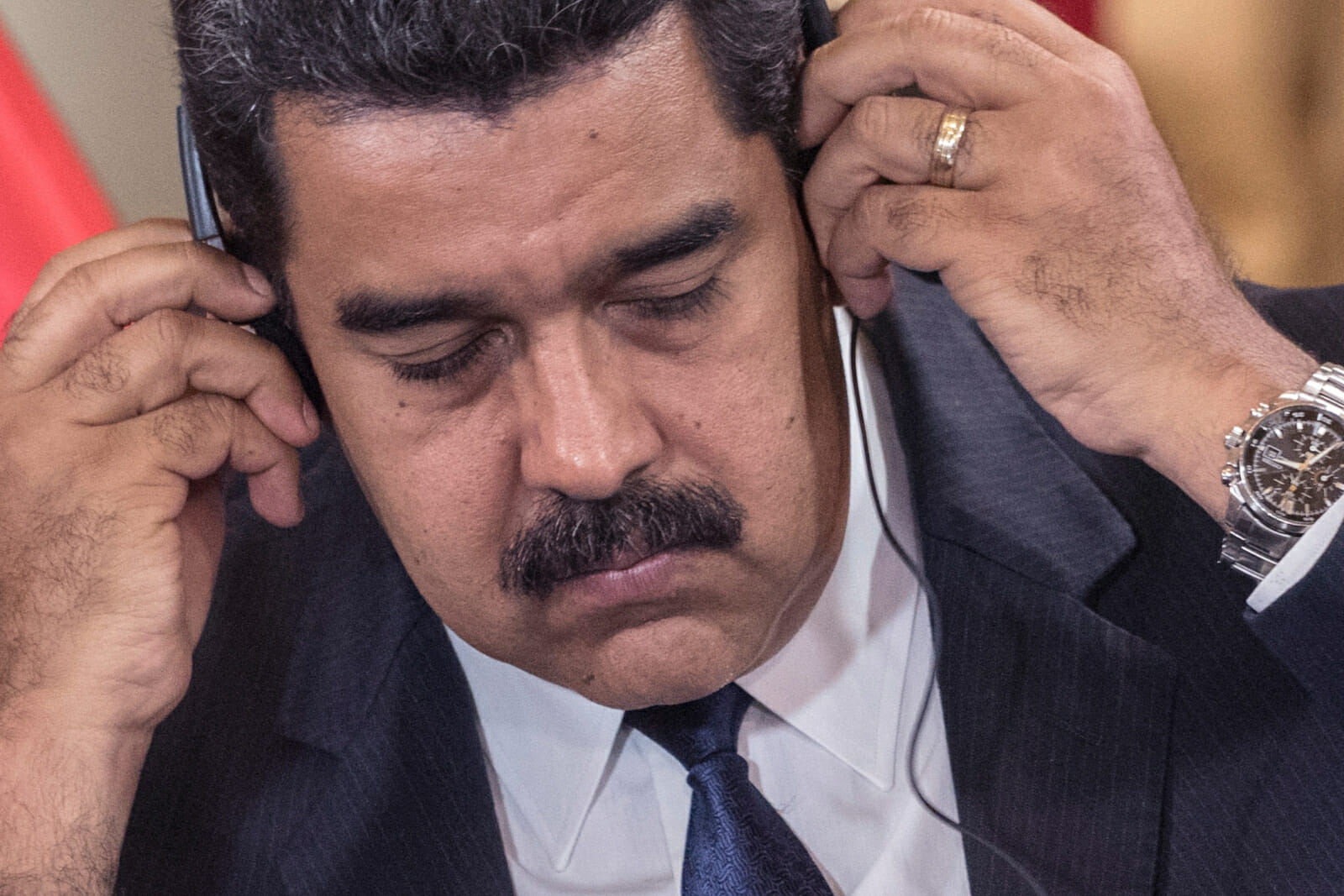
Influencing Regional Politics: The Collapse of Venezuela
Venezuela, once the richest country in the region, is currently experiencing one of its worst economic, social, and political crises. A decade ago, it was at the forefront of the continent’s political change through its influence on South America’s regional dynamics, which ranged from support to Evo Morales and other regional leaders, to the backing of a range of parties. Today, Venezuela continues to shape South America’s local politics, however, neither by giving guidance nor economic support, but by portraying itself as the prime example of a failed state.
Despite having the world’s largest proven oil reserves and considerable deposits of minerals, Venezuela is on the verge of economic and state collapse. Daily inflation rates have made the country’s sporadically existent cash unusable, and long queues to get basic products have become the norm. The economic failure of the South American country has led to a massive refugee crisis with more than 3.4 million refugees spread worldwide, according to UNHCR. Venezuela has become a burden not only to its people but also to other countries.
The steady decline of the country’s industrial and agricultural sectors has forced Venezuela to become a products importer, while the oil industry is currently almost the sole source of revenue for the state. However, PDVSA, the country’s oil company, and golden goose, has declined over the years leading to continuously decreasing oil production and exports. Ten years ago, Venezuela’s oil industry gave the government influence in continental politics with its Petro-plan and alliances, but today, the company is struggling to survive.
The collapse of Venezuelan oil production caused by the lack of maintenance, investments, and qualified personnel represents a major challenge for the financial status of the country. Meanwhile, fresh US sanctions against Venezuelan oil exports and gold, imposed this year to trigger a government change, will exacerbate the precarious economic and social situation in the long run. The country’s economic future appears to be doomed as international markets shut their doors to Venezuelan exports.
Roughly ten years ago, Venezuela spurred the South American Left to power by spearheading efforts to change regional political dynamics. Today, however, Venezuela and Maduro have played a key role in the rise of South America’s right-wing campaigns to power by showcasing the total failure of what was once one of the most prosperous countries on the continent.
The New Political Wave
South American countries which held elections last year and those expecting presidential contests in 2019 have been impacted by what we call the “Venezuela effect.” Colombia, Venezuela’s neighbor, held its presidential elections last year where Ivan Duque emerged as the winner. The resolution of the Venezuelan crisis was important to Duque’s election. During the campaign, some billboards were raised saying “Vote so Colombia does not become another Venezuela” in a move to support Duque. Spurred by his anti-Maduro efforts, Duque beat Gustavo Petro, a former guerilla man and supporter of the late Venezuelan president Hugo Chavez. During the campaign, Petro was affiliated several times with Maduro and his government, damaging the reputation of the leftist candidate. Currently, Duque, who has struggled with popularity, has seen an increase in support after his strong stand against Maduro and his efforts to coordinate humanitarian aid access to Venezuela.
For Brazil, South America’s largest economy, the campaign of President Jair Bolsonaro also took advantage of the Venezuelan situation. Facing Fernando Haddad from the Labor Party, an ally of the Venezuelan ruling party, Bolsonaro was able to use the Venezuelan case to foster criticism against Haddad. Bolsonaro showed himself as a strong candidate who could stand up against Maduro and prevent Brazil from becoming another Venezuela. This, to a certain extent, contributed to the victory of the far-right leader. Once elected, the president proclaimed the need to do everything to restore democracy in Venezuela.
Mauricio Macri, the president of Argentina since 2015, is likely to run for his re-election with his center-right party, Cambiemos, against Cristina Fernandez de Kirchner, a close ally of Maduro. Throughout his term, Macri has been adamant about the removal of Maduro through his efforts in the Lima Group, a coalition of South American countries and Canada against Maduro. The president’s campaign, which revolves around the continuation of his deal with the International Monetary Fund, has been aided by the collapse of Venezuela as Macri is regarded, by some, as the savior of Argentina’s economy. Nicolás Dujovne, minister of economy, said in an interview a few weeks ago that “Argentina would have suffered a crisis like that of Venezuela without Mauricio Macri.” Also, Jorge Faurie, minister of foreign affairs, expressed that “All those who have a reasonable and rational analysis cannot have any doubt that the economy before 2015 was bringing us closer to the possibility of finding ourselves in a scenario like Venezuela is currently experiencing.” The collapse of Venezuela is serving Macri to secure support ahead of the presidential race.
On the other hand, Bolivia’s President Evo Morales and one of the few allies of Maduro, is seeking to run for a third term despite losing referendums against his re-election. He will be competing against Carlos Mesa and Oscar Ortiz in the presidential contest. Morales is one of the few politicians who has continued to support Maduro and his system throughout the years, but backing the collapsing Venezuela is having considerable effects on the presidential race. Mesa expressed in an interview with Los Tiempos “As a candidate, I’m delighted that President Evo Morales continues to support with such effusiveness and with such affection the dictator President Nicolás Maduro because that favors our candidacy and highlights the true political philosophy that Morales believes in.” Mesa together with former presidents of Bolivia believe that the solution for Venezuela lies in the removal of Maduro. The effects of supporting Venezuela’s failed state is already dooming Morales.
Meanwhile, Ecuador’s President Lenin Moreno has distanced himself from Maduro despite coming from a similar ideological current. Instead, the Ecuadorian president met with Venezuelan opposition leader Juan Guaido in order to grant him legitimacy, and he has intensified his efforts to grant free and legitimate elections in Venezuela through his involvement in the International Contact Group. Despite not being a member of the Lima Group, Moreno has understood that supporting Maduro could negatively affect his popularity. The Ecuadorian president has since highlighted that Venezuela is a “failed state” in an effort to dissociate himself from Maduro.
The Maduro Effect
Supporting Maduro as the Venezuelan economy collapses and millions flee the country represents political suicide for many in South America. This depicts a new ideological dilemma between leftists and right-wing parties on the continent as they try to gain power.
The political spectrum of South American governments has been shifting to the right as the Venezuelan crisis worsens. The success of conservative candidates in Brazil and Colombia during last year’s elections and their use of Venezuela’s collapse has shown the effect that it can have on influencing voters’ decisions. This year, we could expect similar repercussions in the presidential contests in Argentina, Bolivia, and possibly Uruguay as the Venezuelan crisis reaches critical levels. For Venezuela and Maduro, meanwhile, the situation is only expected to worsen as US sanctions and international pressure cripple the economy in hopes of forcing Maduro out of power. As a result, South American right-wing parties competing in presidential contests will have new ammunition to use in their races.
A few years ago, Venezuela was at the center of political influence in the continent, today, the South American country continues to do so, not by financially supporting parties or representing a beacon of success, but by showcasing the total failure of what was once the most prosperous country in South America.


